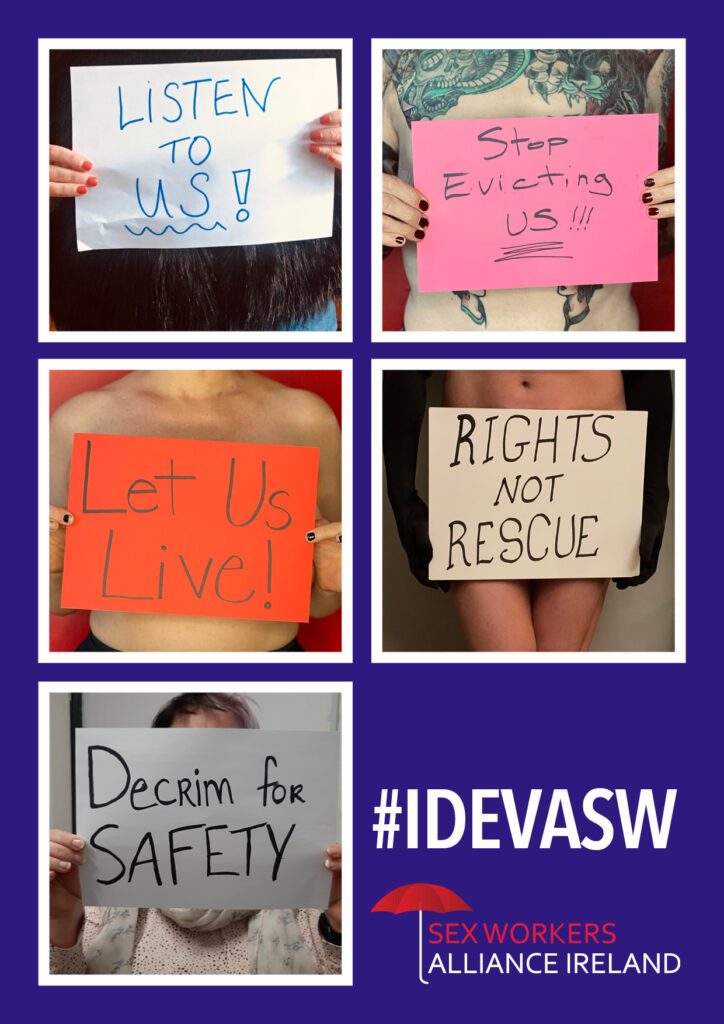
“Today is International Day to End Violence Against Sex Workers, and since we marked this day last year there has been a notable shift in attitudes against sex workers in Ireland,” says Mardi Kennedy, coordinator of the Sex Workers Alliance Ireland (SWAI).
“The tide is turning against sex workers, and it is alarming to see”, Mardi continues. “This year the Department of Justice funded‘ I Must Be Some Person’ research highlighted that 1 in 5 street sex workers in Ireland has been sexually assaulted by Gardaí. This research was unique in giving voice to street sex workers who have been silenced in the dominant narrative around sex work in Ireland.”
Linda Kavanagh, comms manager for SWAI added “We have also recently learned of a sex worker who had their earnings seized at Belfast airport. Selling sex is supposed to be legal on the island of Ireland and yet this worker had her name published online and her earnings stolen by the police. Under what law have her earnings been seized?”
“All-island brothel raids were conducted in November with no mention of the well-being of the sex workers involved. Gardaí have posed as clients and lied to sex workers to get access to them to conduct so-called welfare checks. The Gardaí have then taken the names of the landlords of these premises. These checks, accompanied by mass texts, have terrorised sex workers and we have been contacted by many sex workers who are concerned by these actions. This is not how to go about combatting trafficking and exploitation in the sex industry.”
“Violence against sex workers comes in many forms, not just from clients. Police, the government, healthcare professionals, landlords, and society at large are all vectors of violence against sex workers. We know this because SWAI listens to sex workers themselves. Trust in the Gardaí amongst the rest of the population is at 90% according to the Gardaí’s own research. If we compare that to the Ugly Mugs stats, the only stats of crimes against sex workers that are collected, we see that less than 1% of sex workers report crimes against them to Gardaí.”
“In the past year we have learned that victims of trafficking who were prosecuted for brothel-keeping will not have their convictions wiped. There is a huge problem in Ireland with trafficked people getting recognised as such, while it suits many to conflate all sex work with trafficking. Just look at the number of traffickers prosecuted and how Ireland has been admonished numerous times for our lack of convictions” says Leah Butler.
She continues “On a more positive note, this year the review of the law continued and we eagerly await the outcome of this report. This review MUST centre on the experiences of current sex workers and how the Nordic model of client criminalisation has made sex workers more vulnerable to violence, including violence from the state.”
Here at SWAI we have hired a new coordinator and have a new board, made up of sex workers and allies. We have resumed our monthly coffee meet-ups, and online meet-ups to bolster the diverse community of sex workers in Ireland. We have sent vouchers to sex workers who are struggling with the cost of living crisis because we know that sex workers need more than rhetoric to survive.
This International Day to End Violence Against Sex Workers we demand that sex workers are listened to when we call for the decriminalisation of sex work. The cost of living crisis, on top of the years-long housing crisis, means more people turn to sex work to make ends meet. The Irish government is pushing people into sex work but simultaneously ensures they are less safe once they are.

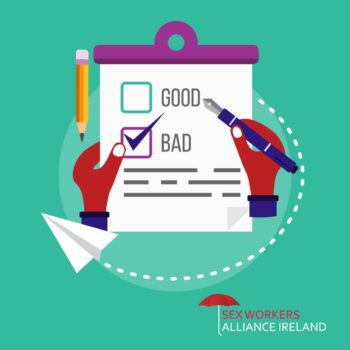


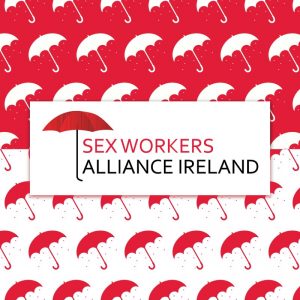 We want to work with Gardaí so that crimes like these can come to justice
We want to work with Gardaí so that crimes like these can come to justice


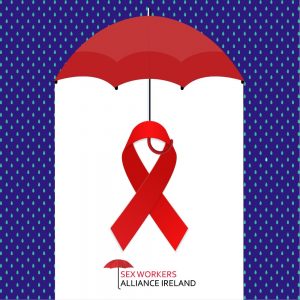
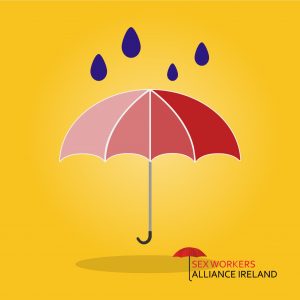 Kate McGrew, current sex worker and director of the Sex Workers Alliance Ireland (SWAI) said today “The same Gardaí department who arrest us for working together for safety is the one who we are expected to report to if a crime is committed against us. Is it any wonder that sex worker trust in Gardaí is at an all-time low?
Kate McGrew, current sex worker and director of the Sex Workers Alliance Ireland (SWAI) said today “The same Gardaí department who arrest us for working together for safety is the one who we are expected to report to if a crime is committed against us. Is it any wonder that sex worker trust in Gardaí is at an all-time low?